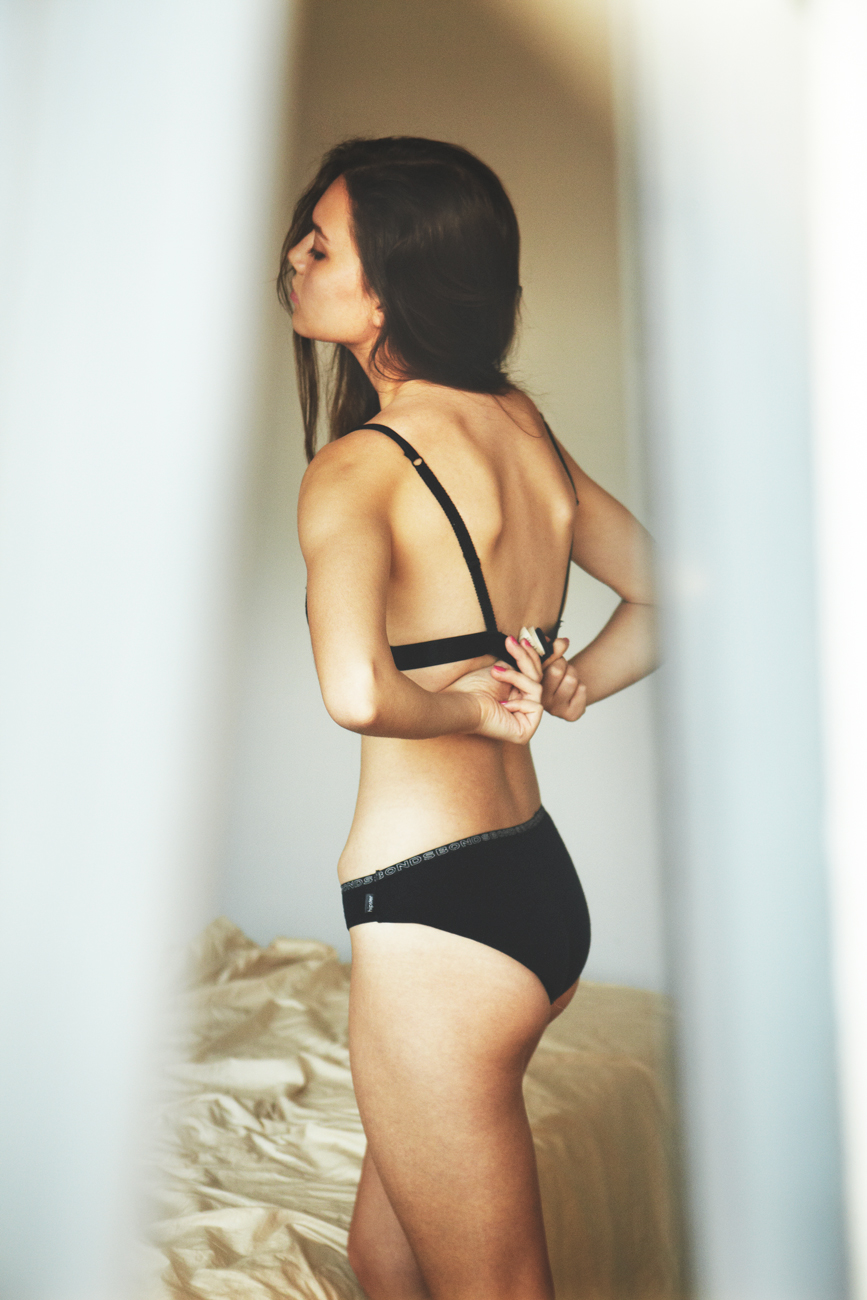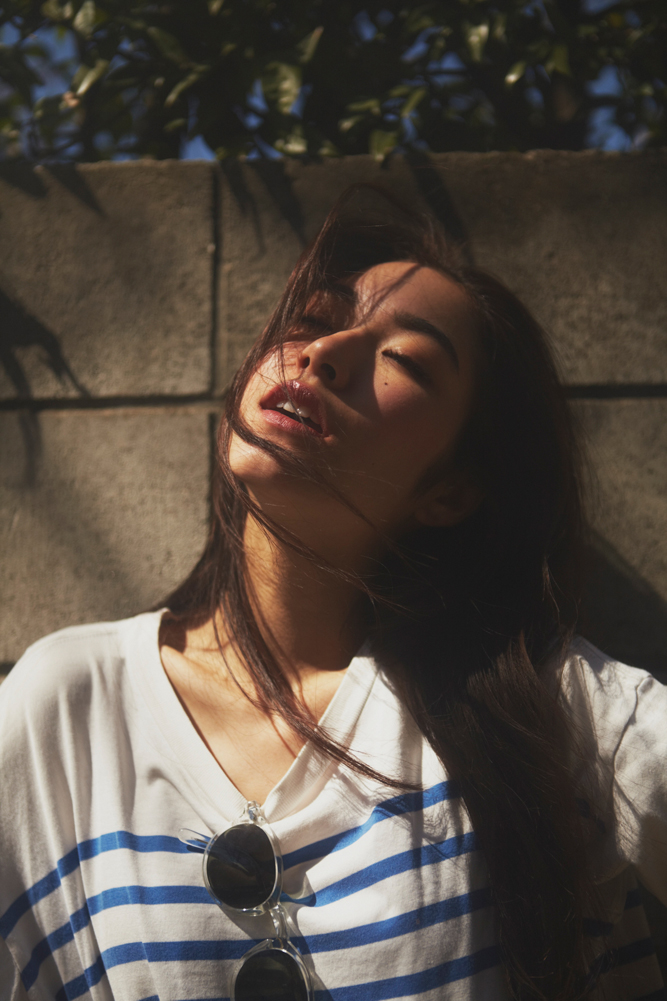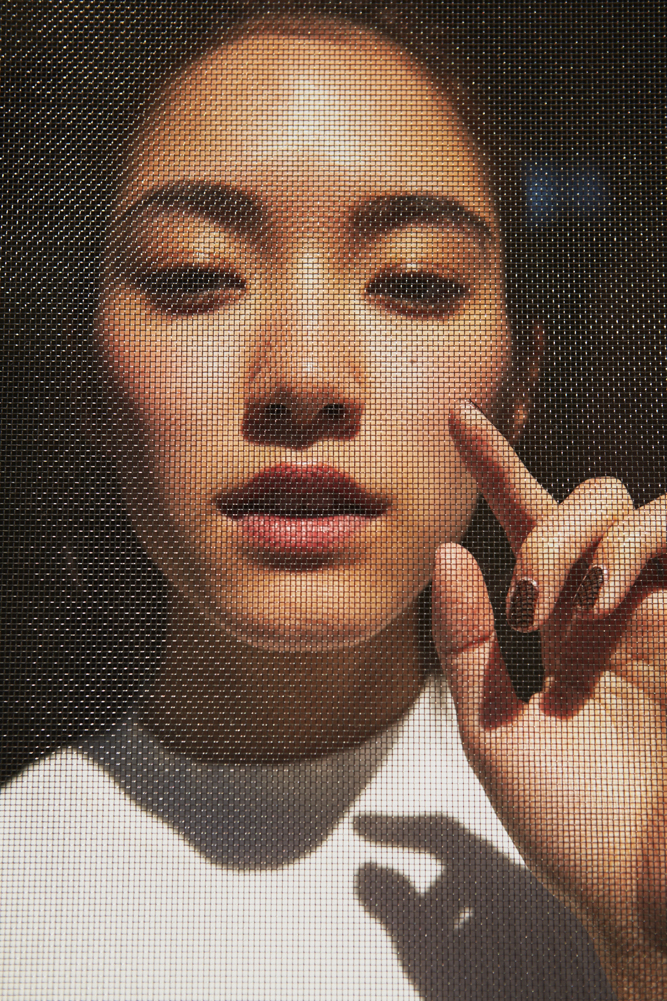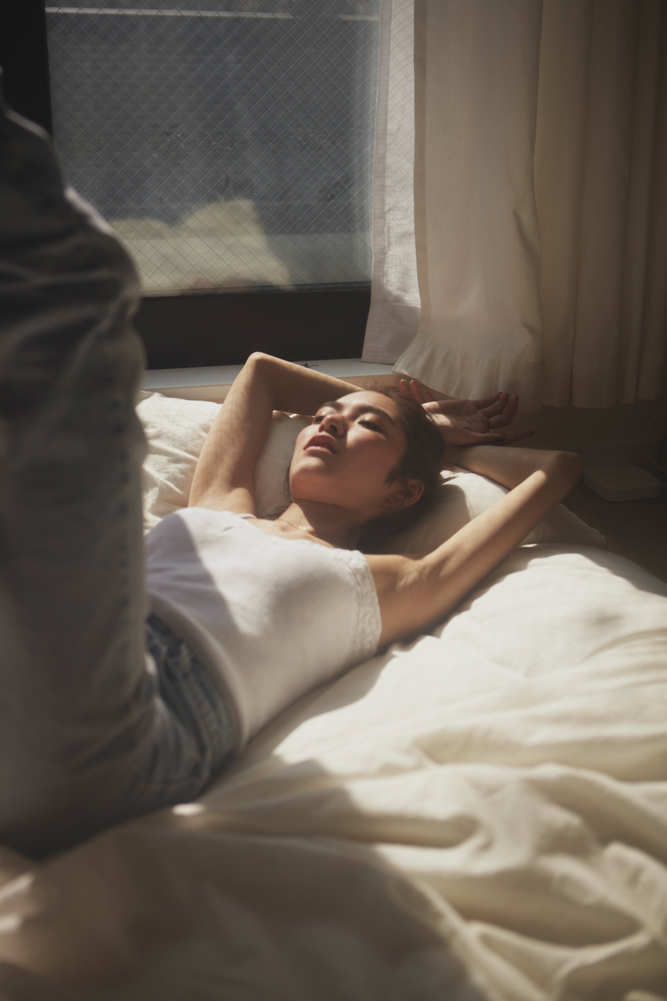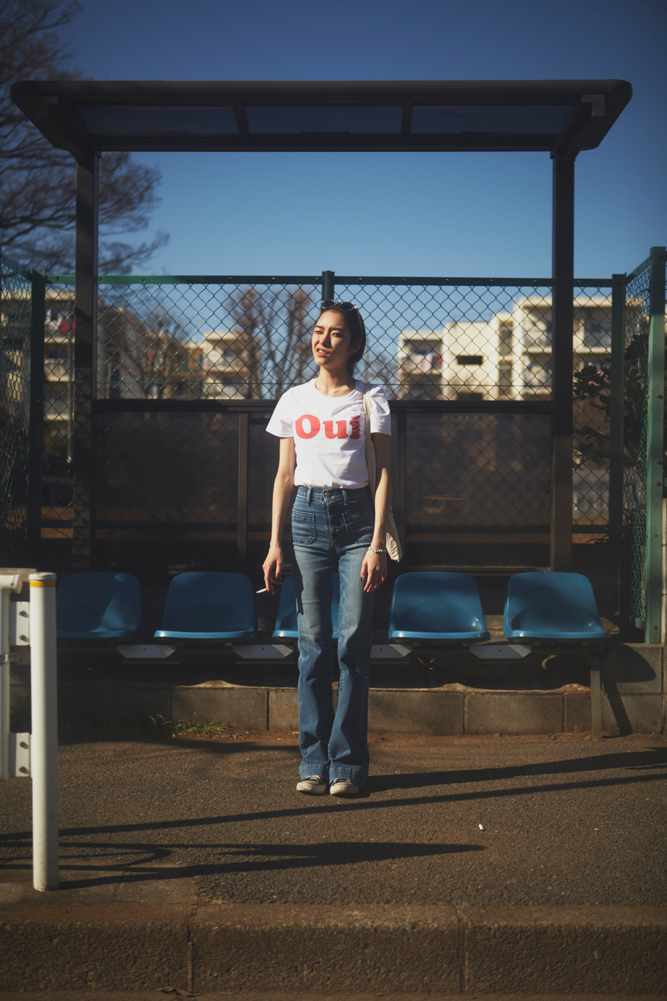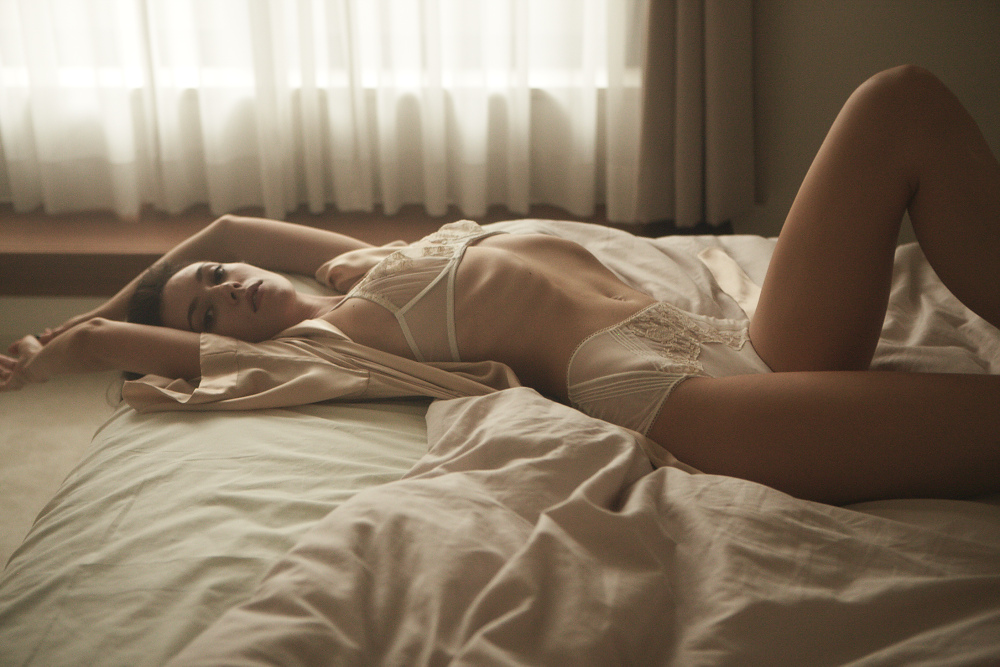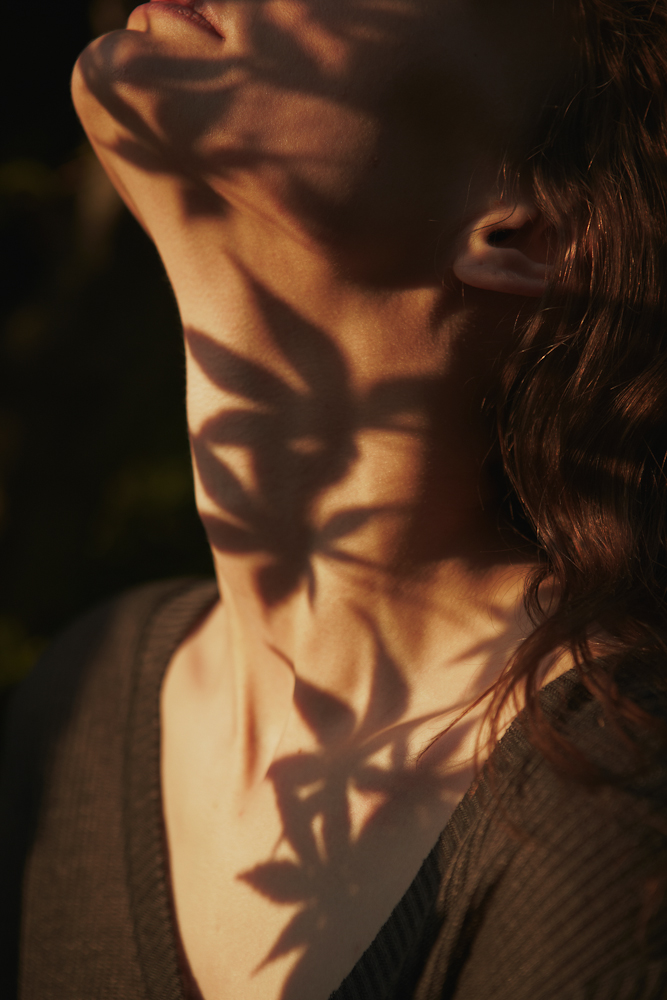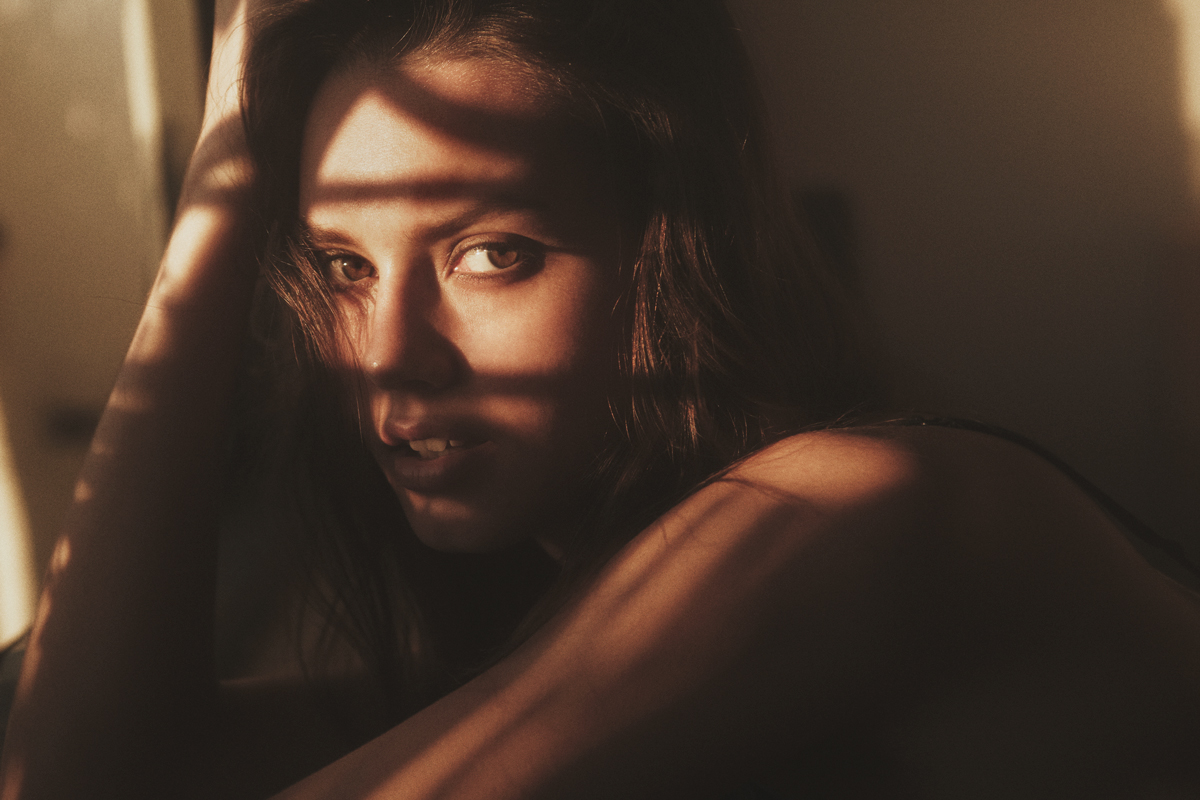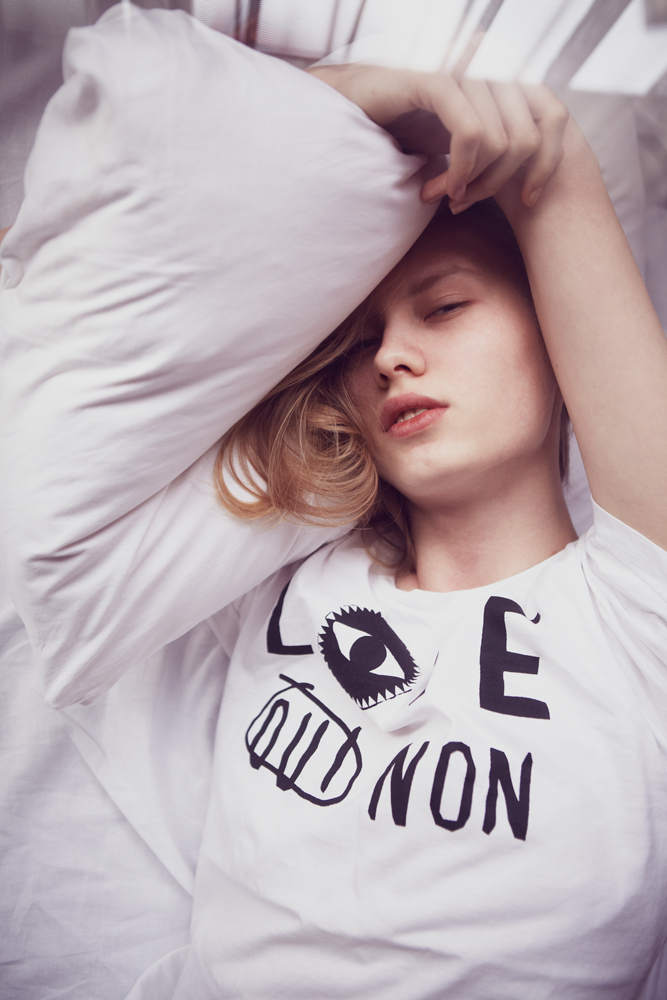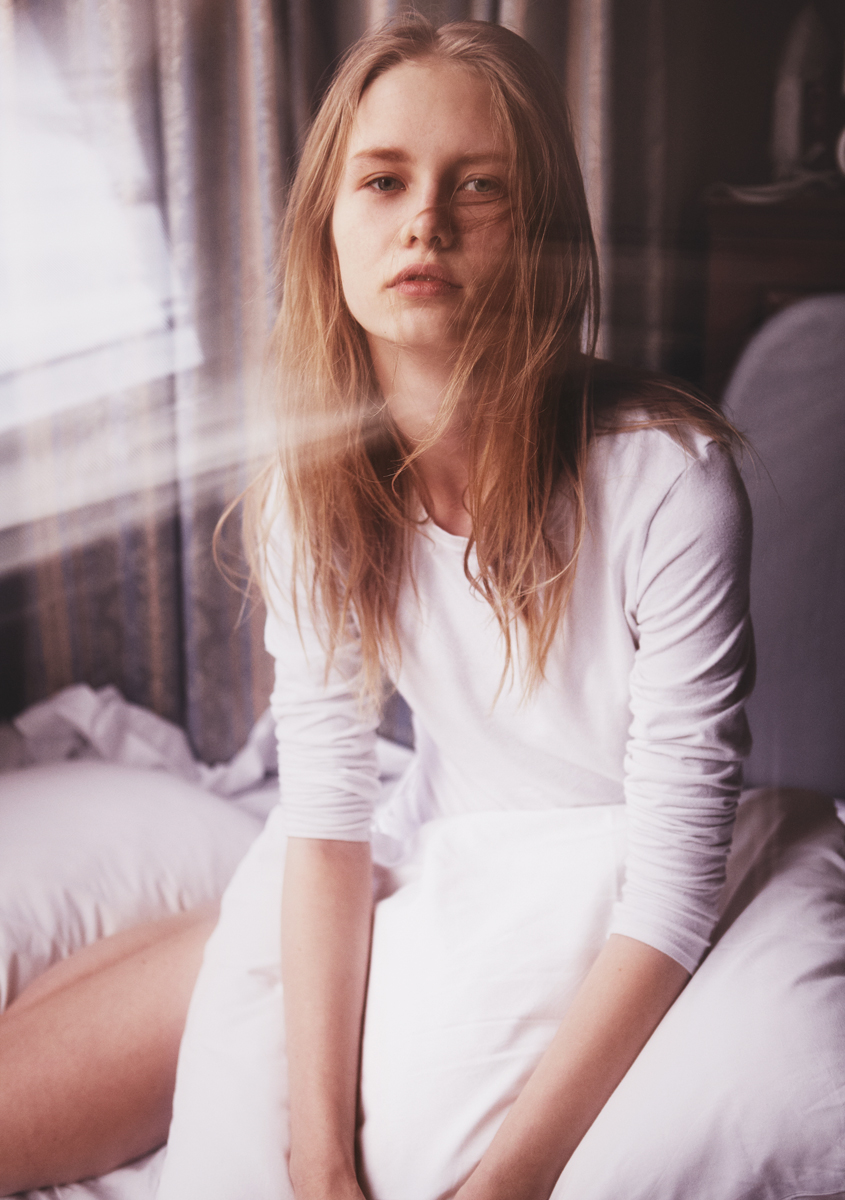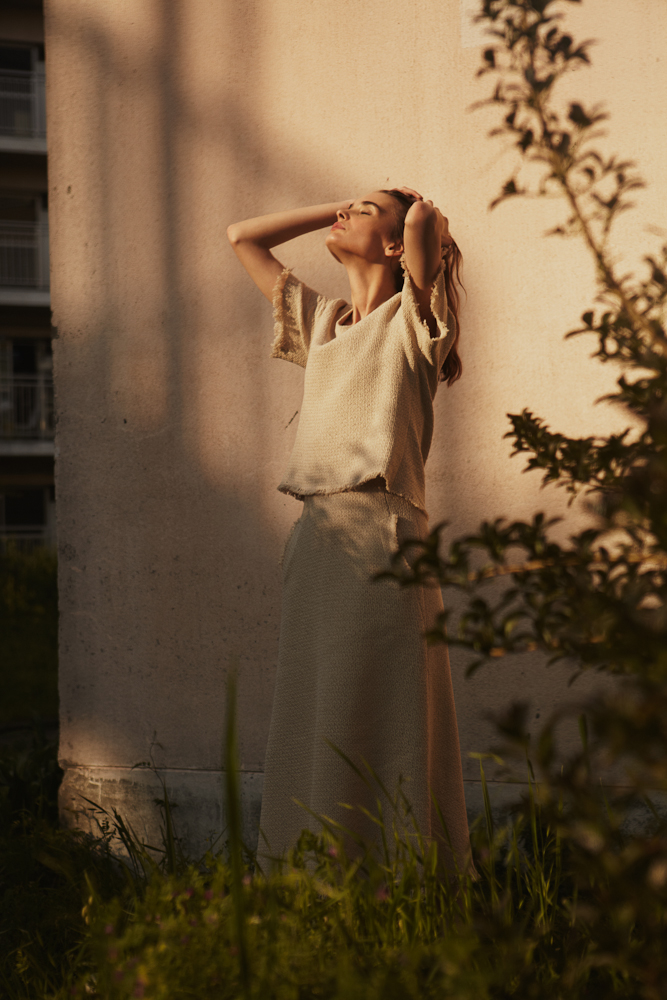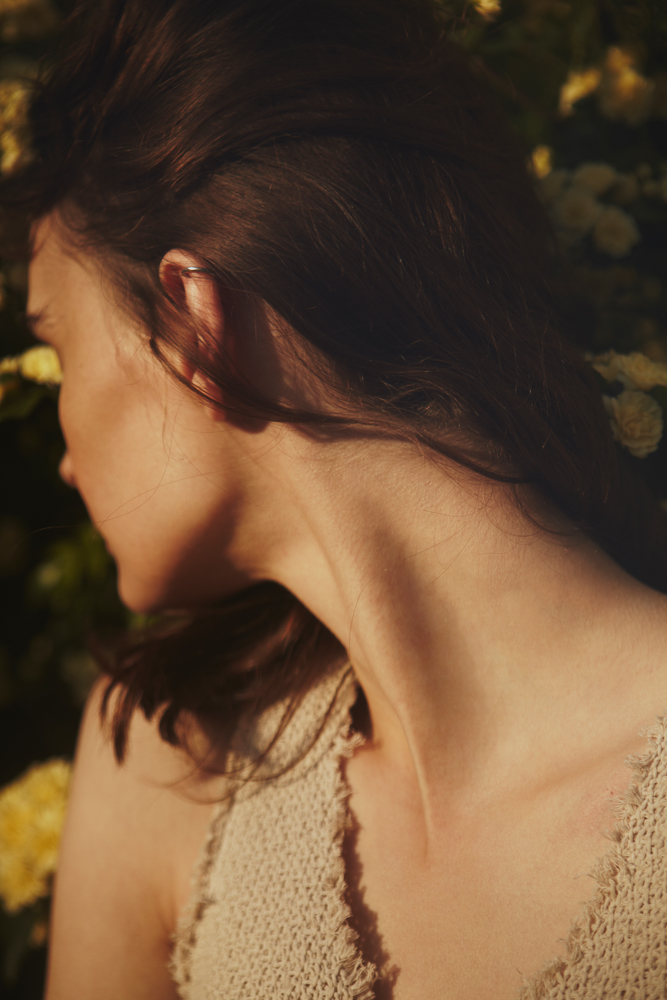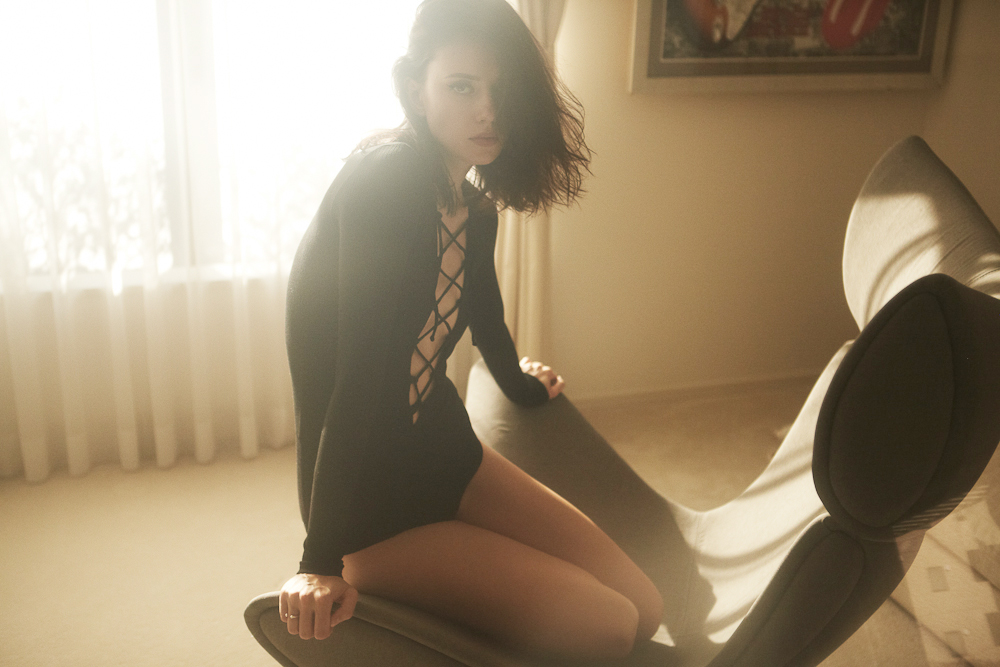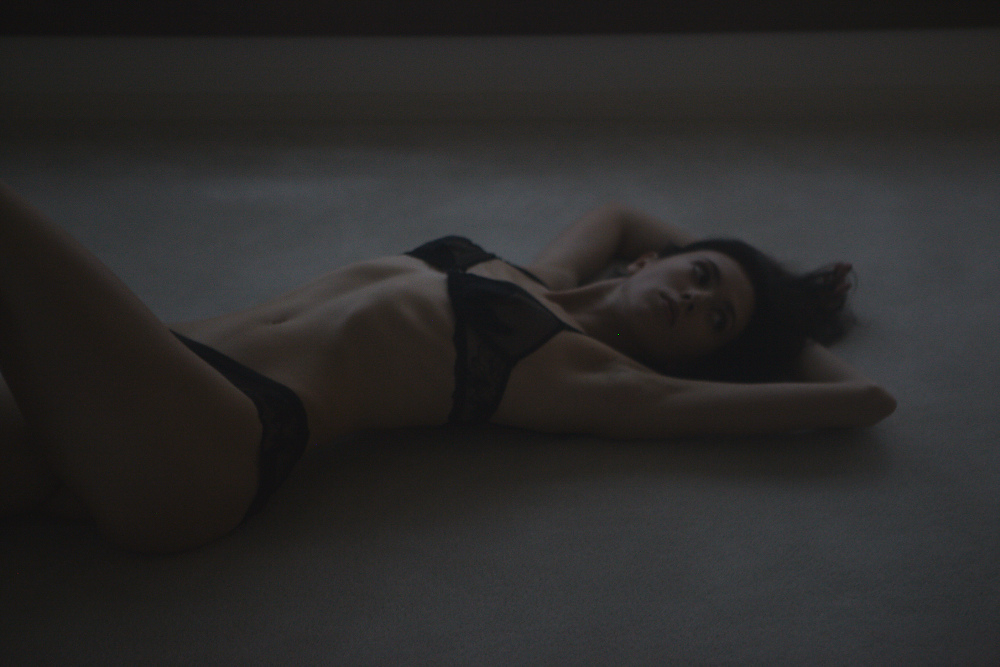“In a city so populated, you become invisible, anonymous. I love being alone, so my heart felt at home in Tokyo.”
Meet the super talented Vien Tran, a photographer who currently resides in Tokyo and Melbourne. He has photographed for L’Official Magazine, Elle Girl (Japan), Nylon Magazine (Japan) and Harper’s Bazaar Australia to name a few. We have a chat exploring his perspective on the world and his photography.
Interview by Lauren Engel, Japanese translation by Nao Maeda
Tell us about your upbringing in Tokyo, how does it shape the person you are now?
Well I didn’t actually grow up in Tokyo but I have been working back and forth for the past 7 years, with the last 2.5 years being full time. I was raised in a suburb called Footscray in Melbourne, Australia. The son of hardworking Vietnamese refugees who settled there in the 80’s. It was an amazing childhood! A working class upbringing in a heroin-plagued, derelict landscape made me an outsider, especially in this industry. There was a stigma connected to the area. So I had to learn how to blend in and adapt. To be invisible to an extent. An invaluable life tool. You will learn not to f*ck with people…you never know what difficulties they have been through in their lives.
The area is now rapidly gentrifying and losing its magic. The hipsters are replacing the immigrants, the quinoa cafe’s will soon take over the Pho shops. The kale shakes will soon replace the Cà phê sữa đá (Vietnamese Iced coffee). I get nostalgic about Footscray in the 90’s, but it’s progress of a kind, I suppose.
Then came Tokyo. A city so full of chaos, colour and light. I was completely consumed! I knew I had been ruined. Nothing would compare from then on. It was everything I didn’t know I wanted. I was completely stimulated, almost overwhelmed. But there is an order to the chaos. Conversely, I felt total peace. In a city so populated, you become invisible, anonymous. I love being alone, so my heart felt at home in Tokyo.
東京では実際には育っていないのですが、過去の七年間の間に行ったり来たりしつつ東京で働き、この二年半は東京で働いています。私はオーストラリア、メルボルンの郊外のフーツクレイというところで育ちました。父は80年代にフーツクレイに移住した働き者のベトナムからの難民です。私の幼少期はすばらしいものでした。ヘロインの蔓延する貧しい地域での労働者階級の生い立ちは−特にこの業界で−私をアウトサイダーにしました。私の生まれ育った地域は悪いイメージがつきまとっていました。だからどのようにして周りの世界に適応するか学ばなければいけませんでした。ある程度姿を消すように。 人生における凄く大切な道具です。周りの人とトラブルを起こさないように学ぶ事。周りの人達がどんなに大変な人生を送って来たのか決してわかりませんから。
私の生まれ育った地域は急速に高騰し、そのマジカルな部分を失いつつあります。ヒップスターが移民に取って代わりつつあり、近いうちにキノアカフェがフォーの店に取って代わるでしょう。ケールシェイクがベトナムアイスコーヒーに取って代わるでしょう。90年代のフーツクレイにノスタルジーを感じますが、これも進歩なのでしょう。 その後、東京に来ました。カオス、色、光に満ちた街です。私は完全に消費されてしまいました。自分が破壊されているのはわかっていました。それから何にも比較できません。それは自分が欲していると自分自身知らなかった全てでした。私は刺激を受け、ほとんど圧倒されていました。しかしカオスには秩序があります。逆に、平和を感じました。人達にあふれた街では、姿を消す事が、透明になる事が出来ます。一人でいるのが好きなのです。だから東京を故郷のように感じます。
At what age did you pick up a camera and why?
I was a late-bloomer. I first picked up the camera when I was 22 when I met my best friend Mikey who was studying photography. We traded passions. When we met, I was a bedroom DJ and he was studying photography. He ended up pursuing DJing and I went on to pursue photography.
Photography appealed to me because I thought it would be easier than painting (I was a terrible painter). I then chose fashion because I thought it was a great way to meet women. It obviously evolved from that. I soon became obsessed with the technical aspects of lighting and the collaborative effort involved in finishing a project. It’s exhausting and frustrating at times, but so is flipping burgers at Mcdonalds.
“Obsession is what keeps you going. “How would this sunlight look against her skin? How would this pale wall look behind this dress? Can I really fit my lighting into this tiny interior? “
私は遅咲きでした。22歳の時に写真を学んでいた親友のマイキーと出会ったときに始めてカメラを持ちました。私たちは情熱を交換しました。私たちが出会った時、私はDJに憧れており、彼は写真を学んでしました。彼はDJの道を選び、私は写真の道を選ぶ事になりました。 写真は魅力的なものに見えました。なぜなら絵よりも簡単に見えたからです(私は絵が下手なのです)。そしてファッション写真を選びました。女性と会う良い方法だと思ったからです。勿論そこから進化しました。すぐに採光の技術的な側面や一緒にプロジェクトを完成させる事に魅了されました。 ときには大変ですし、フラストレーションもたまりますが、マクドナルドでハンバーガーをひっくり返すのも同じです。
How do you see things differently as a photographer?
It feels like everything I see is dissected into lines and shadows. It’s automatic. Almost everything i see is somehow incorporated into potential ideas for a shoot. It kind of has to be. I think with photography, there needs to be a certain level of obsession with what you’re doing. A level that would seem unreasonable to everyone else. It’s the only way to make it through. You’re not going to make money for a long time. Obsession is what keeps you going. “How would this sunlight look against her skin? How would this pale wall look behind this dress? Can I really fit my lighting into this tiny interior? “
自分が見るものは全て線と影に還元されると思います。それは自動的なのです。見る者のほとんど全てが撮影の為のアイデアに含まれているのです。そうならないといけないと言うか。いつも写真の事を考えています。自分の仕事にある程度のこだわりが必要だと思うのです。他の人達には理解不能なレベルでの。そうする事でやっていけるのです。長い間お金にはなりませんし。こだわりがあるからやっていけるのです。「彼女の肌に対してこの太陽の光はどうか。この白い壁はこのドレスの背景でどう見えるか。この小さい空間にライトを入れられるか。」
You have shot for many prestigious magazines – L’Officiel, Harper’s Bazaar, Elle, how did you get this opportunity?
It’s difficult to pinpoint the exact moments that those commissions came into fruition. When I look back to connect all the dots, I realise that I was very lucky to have connected with like-minded people. I think we were all somewhat social misfits and luckily for me, they connected with my pictures.
Obviously, make sure you’re confident with your book. Editors in particular have a very hard job. They assemble their teams carefully and work with the same people regularly. It’s no coincidence. They will give you the small jobs first, but the small ones are often the most important! The small jobs will determine if you can be trusted. They are testing you. So do not take any job lightly! Get this part right, and the more prestigious commissions will come.
Also remember, don’t be a burden. Figure as much out on your own. Have your own ideas that you can gently suggest. Realise you are one part of a bigger machine. The easier you can make it for people, the better.
“You can’t control everything. And in many ways, it’s probably best to let things flourish on their own – with a gentle nudge sometimes“
そういった案件がいつの時点で実現したかはっきりと時期を特定するのは難しいです。すべての点を振り返って、同じような考え方の人達とつながっていた事をとても幸運だと思います。私たちはある意味皆社会不適合で、幸運な事に彼らは私の写真とつながっていたのです。勿論、自分のポートフォリオに自信を持たなければ行けません。特に編集者は大変な仕事を抱えています。彼らはチームを編成し、同じ人達と定期的に仕事をします。偶然ではないのです。彼らはまず小さな仕事をくれます、でもそういった小さな仕事が一番大切なのです。小さな仕事こそがあなたが信用に足りる人間なのかを決定するのです。彼らはあなたを試しているのです。だからどんな仕事も軽く考えてはいけません。その仕事をこなした時、更に良い仕事が来るのです。
同時に覚えておいてほしい事は重荷になってはいけないと言う事です。自分で出来る事は出来る限り自分で行う。必要とされれば自分自身が提供できる自分の考えを持つ事。自分が大きな機会の一部であるという事を忘れない事。他の人が楽に仕事ができるようにする事が大切です。
What lead you to live in two places – Tokyo and Melbourne? What do you love about each place?
I love the slower pace of Melbourne, it’s a wonderful city. But what keeps me coming back is my home suburb of Footscray. It feels like a different country entirely. It has always been an ethnic enclave. Footscray taught me resilience and gave me thick skin. I need to stay connected to the realness of my upbringing. I think people lose touch of themselves in this industry and adopt a false identity. I don’t understand how that helps. Your upbringing made you who you are, why abandon it?
Ironically, Tokyo taught me to slow down. To look inwards. I began to notice the smaller details. Whether it be the rotting plaster of a facade, or the autumn light filtering through the leaves. The sounds of the mama-chari’s (grandma bicycles with the baskets) at 4pm in spring. The smell of ammonia at the East-exit of Komazawa station. It gave me the emotional boost that i felt i needed to elevate my work. Being alone in Tokyo really helped isolate what I was trying to say. Weirdly, people are a lot more approachable in Tokyo. It helps me stay active and motivated. There’s also a nostalgic quality to the light in Tokyo, I can’t quite explain it, but it has had the most profound impact on my work. Maybe it’s all the pollution :)
メルボルンのゆったりとしたペースが大好きです。すばらしい街です。しかし私が個々に帰ってくる理由はホームタウンのフーツクレイの郊外なのです。全く違う國のような感じです。フーツクレイはずっと民族的な飛び地でした。フーツクレイは私に回復する力と強さを教えてくれました。自分が生まれ育った真実の部分とつながっていたいのです。この業界では多くの人が自身とのつながりをなくし嘘のアイデンティティを選んでしまうように思います。私自身はそれがどのように役に立つのかわかりません。自身の出自が自身を作ったのに、そうしてそれを捨ててしまうのでしょう。
皮肉な事に東京からゆっくりと生きる事を学びました。内側を見る事を。私は細かいことに気づくようになりました。それがファザードの腐っているプラスターでも、葉を通して見える秋の光でも。ママチャリが春の朝四時に出す音。それは仕事をしっかりしなければと言う心理的高揚感をもたらします。東京で一人でいる事は自分自身が言いたかった事をはっきりさせてくれます。不思議な事に、東京では人達はずっとアプローチしやすいです。それは私自身をアクティブさとモチベーションを与えてくれます。また、 東京の光にはノスタルジックな者があります。上手く言えないのですが、それが私自身の仕事に深い影響を与えています。もしかしたらそれは大気汚染かもしれませんね(笑)
“Work with the elements, not against them. Everything has a voice. Let him/her/it speak.”
What was the last thing you learnt about yourself?
I have learnt that it’s not always best to try and transform what I’m shooting. I need that connection with who or what I’m photographing. In order to achieve that, I need to let them express themselves too. You can’t control everything. And in many ways, it’s probably best to let things flourish on their own (with a gentle nudge sometimes). Whether it be a model, or a certain location. Invest in that extra 5 minutes it takes and let the situation speak to you. Work with the elements, not against them. Everything has a voice. Let him/her/it speak.
Ultimately, I’ve learnt that the best question to ask myself before every shoot is this: “Ok, what can I add to this.” It’s about enhancing, not changing. I have learnt that this is where my skills and experience flourish. Like a chef, you start off with great ingredients; model, clothing, team, location, there is only so much you can do before the narrative becomes convoluted.With my commercial clients, this is not always the case. Sometimes you will need to create something completely new. It’s an exciting challenge, but you need to know the limitations of a situation. This is where managing expectations is crucial.
自分自身の被写体を変えようとする事がベストではないと学びました。私が写真を撮っている人やものとのつながりが必要なのです。それを得る為に被写体そのものに表現をさせる必要があります。全てのものをコントロールする事は出来ません。色々な意味で被写体に(時にはやさしくヒントを与えつつ)自らを咲かせる事が一番良いのではないでしょうか。それがモデルであっても場所であっても。後五分の時間を取り、その状況に話をさせましょう。素材と仕事をするのです。素材に対して仕事をするのでなく。全ての者は声を持っています。それに話させるのです。
最終的に撮影前に自分に問いかける採光の質問は「で、これに私は何を足す事が出来るだろうか」という事になります。それは変えることでなくて、高める事なのです。これが私自身の技術や経験が花開く所だと学びました。まるでシェフのようにすばらしい素材とともに仕事を始めます。モデル、服、ロケーションと言った。物語が始まる前に自分に出来る事はほんの少しなのです。私の顧客が広告の場合、こうでない場合も往々にあります。時として全く新しいものを作る必要があります。これはエキサイティングなチャレンジです。しかし状況の限界を知らなければなりません。個々が人々の期待をマネージする事が必要不可欠になる所です
What is your opinion on true love?
I don’t believe that such a thing exists. What does it mean? True love? I think compatibility is much more exciting and makes a lot more sense.
私はそんなものが存在するとは信じていません。それ何を意味するのか?本当の愛?一緒にやっていけるという事の方がもっとエキサイティングで理解しやすいと思います。
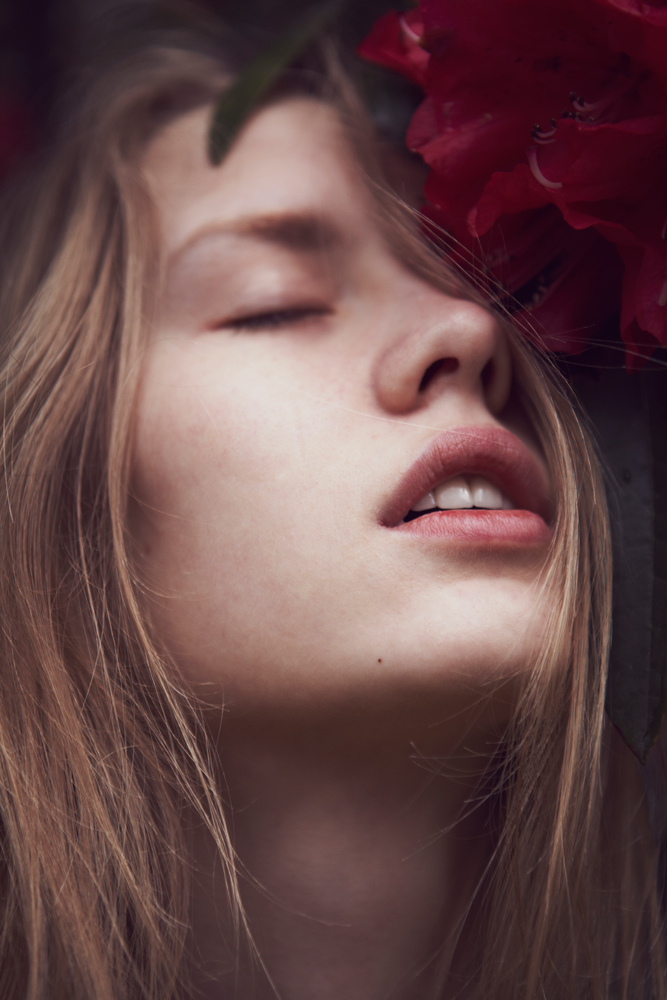
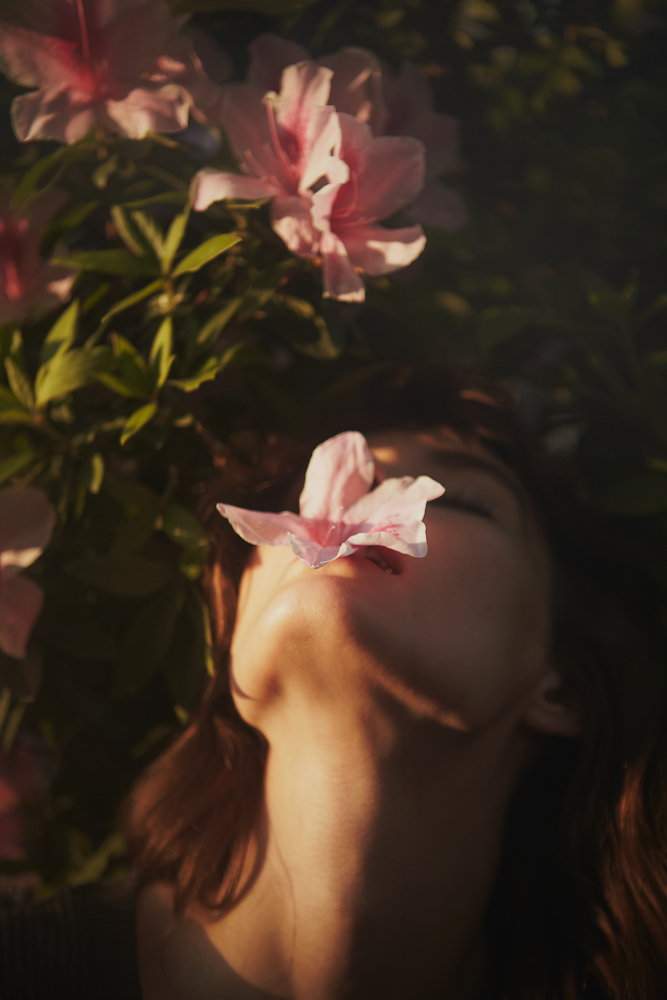
client @liviaarenalabel
